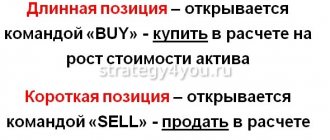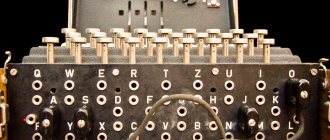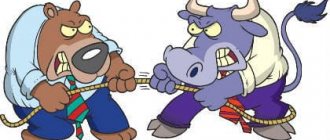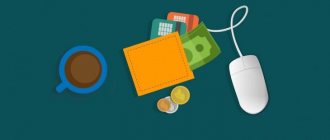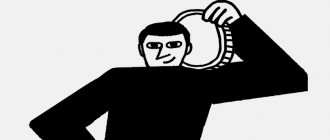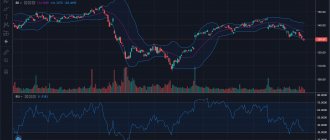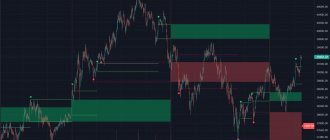Films and books create an adventurous and heroic aura around stock trading, but the reality for many traders is not so rosy. Some achieve a loss-to-profit ratio of 1:10, while others lose everything. This blog is for those who want to be a winning trader. It is taught by a professional with 12 years of trading experience on the Chicago Mercantile Exchange (CME). Cases, articles, collections of facts and life hacks, descriptions of psychological phenomena and specific recommendations are addressed to both bulls and bears, fellow professionals and beginners. To everyone who fearlessly goes out into the stormy ocean of global stock trading with the intention of winning.
The tempting world of trading
Trading is a promising and alluring activity that everyone who has come to the conclusion about the need to achieve financial freedom has thought about. But thanks to amateur speculators, sandboxes with binary options, scandalous cryptocurrency “swings” and simply due to a lack of information in the Russian-speaking segment of the Internet, trading has acquired a lot of frightening speculation. Humanity has six centuries of stock trading behind it! But many people are sure that trading is a type of “scam” or, at best, gambling. However, there are no less those who think that you can come to trading with an empty head and ten dollars in your pocket, and then turn into the new Warren Buffett. Both are far from the truth.
Trading is a serious business that requires a professional approach, knowledge, strict self-discipline and psychological stability.
Let's check - do your ideas about trading correspond to reality?
Find a job
Yes, it sounds strange. But having a regular job will automatically improve your trading. Because the work will relieve you of the need to make money only from trading and will help you become more profitable in trading.
If trading is your only source of income, you are putting yourself at a psychological disadvantage due to the pressing need to make money every month. This causes you to make bad trading decisions such as increasing your stop loss, averaging, or trading large lots.
Therefore, most professional traders do not rely on trading as their sole source of income. They often additionally run training courses, websites or blogs. They do this not because they do not earn money from the market, but because having an additional source of income, they feel financially independent.
Therefore, at the very beginning of your trading career, until you have enough knowledge to teach others, start your own blog or YouTube channel on trading, do not leave your regular job or find a job if you do not have one. This will allow you to focus on trading in your free time without worry or hassle, without worrying about whether you can pay this month's bills or buy food.
Also, an additional source of income will help you constantly invest money in trading. The average return on financial markets is 20% per year. This means that if you have $1000 in your trading account, after a year you can earn $1200. Therefore, without replenishing your trading account, it will be difficult for you to consistently make money on Forex without excessively increasing your risks. By investing your free money in trading, you can earn more.
Choosing an exchange for trading
So, there are more than 200 exchanges in the world with different specializations. I have been working for 12 years at the largest commodity exchange - Chicago (Chicago Mercantile Exchange - CME). Each trader has his own achievements, but, as the cases of the author of MonsterTraders show, in a day it is quite possible to enter into trades with a profit of $3,000 and keep risks within 1:10 (loss-to-profit ratio).
Examples of transactions with screenshots, which are carried out “hand in hand” with beginners, are regularly posted on the @MonsterTraders channel.
If you're wondering what the Chicago Stock Exchange is all about, here's a quick guide to this giant trading platform.
Test your strategy
One of the most important components in trading psychology is confidence in your trading strategy. If you are not confident in your strategy, then how can you trade during drawdown periods when not every trade will be profitable? Then you will abandon your strategy and look for a new one? And then the cycle will repeat? This is not an option. You need to find a trading strategy that suits you and constantly improve it.
Test your strategy to make sure it works. If a trading strategy has performed well in the past, it should perform well in the future.
For this purpose, you can use the manual method, where you rewind the charts and look for suitable trading situations in the market to test the performance of your strategy. The advantages of this method are that you don't need any special skills and you practice understanding the price action market. Of the minuses: the results may not be entirely accurate due to subjectivity, and it will also be difficult to calculate all possible risks.
However, if you like to manually test strategies on charts, here is the correct sequence of actions for this:
- Have an accurate understanding of the trading setup you are looking for.
- Rewind the chart as far as possible. For example, on the daily timeframe you can rewind the chart for several years.
- Try to gradually move the chart forward one candle and predict the further movement of the market.
- Always keep a trading journal and record all your trades in it. This will help you collect the necessary statistics on your strategy.
Automated testing uses a programming language or special programs. Therefore, you can quickly test any strategy and immediately find out its possible risks. However, for this you will need special knowledge, and a strategy that has worked well in the past will not always work well in the future.
Lars Tweed "The Psychology of Finance"
This book shows how great the influence of the psychological mood on the stock market is and what “mental traps” a trader falls into. The author examines in detail the phenomenon of “crowd psychology” in stock trading and how to avoid its influence. Real practical examples show how to stay cool during sharp market fluctuations, how to predict them and make a profit.
D. Cohen “Psychology of the stock market - fear, greed and panic”
The author proves the importance of understanding the psychology of the stock market for successful trading. He goes into detail about factors that are often ignored by experts and analysts - greed, fear, information overload, fear of mathematics, excessive optimism, etc. Psychology is very important for a trader - mastery of it allows beginners to trade consciously and save their deposit. The book also contains tests that will help you determine the level of your financial skills.
Rudyk N.B. "Behavioral finance or between fear and greed"
Russian version of trading as biology. It examines the irrational nature of man, the ability of investors and financial managers to make adequate decisions in difficult situations.
The classical approach to finance assumes the traditional concept of decision making based on rational thinking. And Rudyk’s book contrasts this with the idea of cognitive illusions, due to which systematic errors occur in human thinking.
Illusions appear when there is excessive self-confidence, a symptom of the so-called “hot hand”, sticking, disposition, overly active trading - these are only part of the reasons for the appearance of errors described in the book.
Learn to think like professional traders
A professional trader has a simple opinion about the currency and stock markets, while novice traders like to complicate everything and attribute incredible events to it. Sometimes their opinion is so unusual that you can write science fiction books based on it. In order to start thinking like a professional trader, you need to remove all the junk from your charts. All novice traders love to fill their charts with various indicators or trading robots, but all this is completely useless rubbish that only obscures the view. Such a number of computerized methods will lead to overanalysis of the market, and consequently to its incorrect understanding.
Don't complicate trading, it's simpler than it seems. Of course, making money in the market is not an easy task, but with enough hard work and patience, you can quickly master it. There is no need to constantly monitor and analyze the news, although these factors have a great influence on price movements. It is much easier to study the theory of Price Action than to spend years studying the impact of certain news on the market.
Most successful traders trade using very simple technical strategies and do not worry about the release of any news, since they know that any global news will be reflected on the chart of the currency pair as its component. If you want to think like a professional trader, pay more attention to what price is telling you through candlesticks and technical analysis rather than economic reports.
The truth is that almost all new traders make more psychological mistakes than those related to their strategy.
How emotions influence: entering with a large lot, attempts to win back, misinterpretation of the current situation, indifference to the result.
As you can understand, this leads to the inevitable death of a trader’s career. Emotions will drag you down until you learn to control them. Try to get the better of them.
All the tips in this article will be useless if you don't follow them. And in order to start following them, you will need something like “glue”, something that will hold each mechanism and point together. This “glue” is created from two ingredients: a trading plan and a trading journal.
By using these two powerful tools, you can instantly improve your trading and that's not just words. Sometimes, after the third hour of trading, a trader’s head and eyes become clouded, and he begins to enter into transactions that would seem completely absurd to him in the morning. Therefore, by keeping a trading journal, you can identify those moments when your trading becomes unreasonable and your entries meaningless. By removing these elements from your trading, you will be able to grow your deposit amount faster.
It turns out that a trader must have a trading routine plan that will help him avoid overanalyzing the market. But what is a trading routine?
In layman's terms, this is what you will do every trading day. For example, analyze your trading journal, learn new things about the market, enter into a certain number of transactions, and the like. In simple words, start working like a certain algorithm that does not make mistakes, but does everything according to the system.
As you understand, a trader must make everything as predictable and easy as possible, only then can he become successful.
Be rich
The harsh truth is that few people make money from trading. You are dealing with possibilities, but you have no guarantees. You will have both losing and profitable months. Therefore, you must be prepared for drawdown periods when you will not be able to withdraw money from your trading account all the time.
Therefore, you should not spend all the money you earn. Strive for wealth, but don't act like a rich person! Otherwise, psychology will play a cruel joke on you and you will have to think about money, and not about trading itself. And this is no longer acceptable. Don't forget about balance. A comfortable psychological state is most important.
Visualization: draw a dream!
Friends, to one degree or another, thoughts are materials. No, I'm not talking about the fact that you can change the movements of the chart with the power of your thoughts. But you don’t need to program yourself for failure in advance either. Believe in your success, and if this is not an empty belief, if in addition to this you are simultaneously developing within the market, success will definitely come. Here's an exercise for proper visualization:
- Focus on the financial side of your life. What is your monthly income? Annual? How much money is in savings accounts? What does all this amount of money look like if you cash it out, what does it look like?
- Then imagine in every detail what your dream home looks like. Does it have a swimming pool, sauna. How it is furnished. Try to present all the details in as much detail as possible;
- Do the same with other areas: career, hobby, family, recreation;
- Important point. Under no circumstances should you tune into negativity within your visualization. What does it mean? Let's say you imagine a house on the Cote d'Azur. Questions like “how can I get such a house, I earn too little” are destructive and are obviously programmed for failure. Let there be no such contradictions within your visualization;
- This exercise needs to be done daily, or write everything down on paper and re-read it periodically.
How can this exercise help? Of course, it will not make you a billionaire from the top of the Forbes rankings. But in order to become a successful trader, a successful person, you need to think accordingly.
A. Elder “How to play and win on the stock exchange”
Success in trading is based on 3 “pillars” – trading psychology, its methods and risk management. The book describes how to avoid mistakes, emotional traps and improve your discipline to the fullest. Stock trading is seen as a tough game. Only by knowing and following its rules can you win and increase your capital. The book includes an interesting problem book developed by the author for training traders.
How to overcome psychological stress?
If you need to provide for your family, you shouldn't spend all day trading. The psychological pressure will be too much and it will harm your trading performance. However, if you are serious about dedicating yourself to trading, then raise enough money to cover 12 months of your living expenses before you start trading the financial markets. It will also be ideal if you have an additional source of income, maybe a part-time job. In the end, you can train other traders at the same time and make money from it.
T. Oberlechner “Forex Market Psychology”
Typically, books on the topic “forex market psychology” suffer from excessive technicality and are difficult for beginners. And Oberlechner’s book is aimed at revealing precisely the psychological component of the foreign exchange market. It makes no sense to read it without basic concepts about psychology and Forex.
According to the author’s theory, the market is not some kind of substance separate from a person, not a separate object of the economy. It is the creation of its participants, a reflection of thoughts, feelings and subjective information in the heads of traders.
Oberlechner argues that fundamental changes in exchanges occur not when economic conditions change, but when the collective perception of exchange participants changes. And this is a completely different phenomenon.
The author presents the material in a scientific style, citing sources for each issue, which gives even more weight to the theses presented. He is clearly a subtle psychologist and knows how to focus on individual details that have practical significance, the result of which is income on Forex.
For example, here is the answer to the question why, in the middle of a session on the American market, the euro exchange rate without any apparent reason (news or comments) rises sharply and does not fall. And thousands of such narrowly focused questions arise during trading. And you will understand them by the end of reading this work.
Terry Burnham "Mean Markets and the Lizard Brain"
Most often, in difficult financial situations, people behave irrationally. The reasons for this behavior defy any logic. And Burnham's book is most valuable because it examines these reasons in great detail, giving a new, original look at the market from a different angle.
It contains many recommendations from the author on practical trading - choosing currencies, real estate, stocks or gold, which are still relevant today. Suitable for both experienced traders and beginners. The author has been studying for a long time how the biological component of modern man affects his life. Burnham is a professor at Harvard University and Harvard Business School. Before his scientific career, he was the CFO and president of the biotechnology firm Progenics Pharmaceuticals.
His work on the treatment of AIDS and cancer found wide support among specialists. He researched the role of testosterone in negotiations and became a leader in the application of biology to finance and economics. He also worked on Wall Street for a long time, so the book deserves close attention.
Download the book from the link
Terry Burnham - Mean Markets and the Lizard's Brain
Zulu method
Important economic news coming out today! I hear this every day from at least one of my students. And then they send me a losing trade for analysis with a comment: a bullish Pin Bar appeared on the GBP/USD chart at a strong support level, but looking at the economic calendar, I noticed that important news on GBP is coming out today, fundamental analysts say that the news will be negative , so I made a deal to sell.
From the commentary you can understand that a person trades using two types of market analysis, which exclude each other, which means that the probability of making the right decision is 50%, you can just flip a coin, you don’t even have to think.
I believe that there is no point in explaining the problem of such traders - everything is clear.
And there they taught me to do it like this
Here is another comment on the transaction: on the chart of the AUD/USD currency pair, a Bearish Pin Bar was formed at a strong resistance level, the entry was made after the price broke through the minimum of this Pin, the risk-reward ratio was set to 1:2, the goal was not achieved, a loss was received .
It is worth noting here that the trader was guided by two trading methods, which are optimized for different situations. What I mean is that when entering a breakout of the Pina minimum, the stop will be much larger, we will enter at a worse price, and the market will have to travel a greater distance. In this situation, it would be more reasonable to set the ratio to 1:1.5. I teach how to enter from a Pina correction, this reduces our risk, gives us the opportunity to enter at a better price, and we can also establish a better profit-loss ratio.
But when someone starts trading using two methods at once, the probability of a positive outcome decreases noticeably.
I understand that you want to believe that the courses for which you paid $1,000 contain at least some useful information, but you should not mix the two approaches because of this, otherwise you will lose even more.
I hope that you have learned the first two points for yourself and will no longer combine incompatible things. Let's move on.
What is the Zulu Method?
The first picture that comes to mind after reading the title is a bunch of naked Indians jumping around a fire, but here we have a different meaning.
A long time ago, about 6 years ago, I read a book by some trader (I understand, there is too much uncertainty), who argued that speculators lack concentration on the chosen vehicle and cited his wife as an example, here is a brief retelling.
One day, my wife read a book about the Zulu tribe, after which she came up to me and told me one interesting fact about them, I was interested, but I thought about something completely different. What if she read all the literature devoted to this tribe, and later went to them and began to understand their culture herself, then she would become a professional in this field and would be able to participate in various scientific programs, since she would know more than anyone else about this tribe.
It’s the same with trading, if you start scattering your attention on extraneous vehicles, then you will achieve nothing; at best, you will stand still and be glad that you simply do not lose money. But if you can focus on one specific teaching, you can constantly move in the right direction. It should look something like this.
This can be imagined as a small quest, where your enemy is unreliable information that is incompatible with your method; rest assured, it will try in any way to get into your head and ruin everything. It is necessary to build a strong defense and go to the end.
How to properly implement new knowledge into your trading method?
Imagine this: you are building a house from a durable material that has been tested for centuries, has passed all laboratory tests, has been hardened like steel, etc. But suddenly, you have little money left, and there is a need to replace your super-duper bricks with a cheap but high-quality analogue. You start your search and suddenly come across building materials from, what will you do?
I doubt that purchasing such blocks will be your first action. Most likely, you will start looking for reviews about it, then submit them for quality control, put this block through all sorts of tests, perhaps even shoot it with an SVD, because you don’t want to finish building your future home from low-quality material, especially since you already invested a huge amount of money in building 3/4 of the house from heavy-duty slabs, bricks or something else.
Your trading method is a house, if you start building it out of everything, then I doubt it will last long enough. It is necessary to introduce new knowledge after you are convinced of its quality and reliability, check it against the history of various currency pairs, and adjust it to your needs. If this is not done, the consequences will greatly upset you, perhaps so much that you no longer want to build a house for yourself and your family.
If you want stability, then you need to pay enough attention to something specific, and not spray it on everything. And remember, “A chain is only as strong as its weakest link.”

